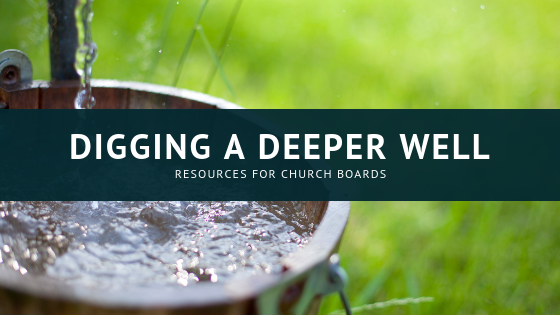Ah, Advent!
Well, certainly in church, you will hear congregational leaders saying, with at least a little exasperation, “Ah, December!” What a month! Crowded calendars, last minute financial asks, special programs and everything else.
It is unlikely that the First Century gospel writers could have imagined one tenth of one percent of what “preparing for Christmas” looks like for us today. But their texts seem tailor-made for an over-stuffed month.
The opening chapter of Luke begins with the birth of John, before the birth of Jesus. When John’s father Zechariah is told by an angel that this birth is going to take place, Zechariah responds—and soon finds himself silenced:
18 Zechariah said to the angel, “How will I know that this is so? For I am an old man, and my wife is getting on in years.” 19 The angel replied, “I am Gabriel. I stand in the presence of God, and I have been sent to speak to you and to bring you this good news. 20 But now, because you did not believe my words, which will be fulfilled in their time, you will become mute, unable to speak, until the day these things occur.”
21 Meanwhile the people were waiting for Zechariah and wondered at his delay in the sanctuary. 22 When he did come out, he could not speak to them, and they realized that he had seen a vision in the sanctuary. He kept motioning to them and remained unable to speak. 23 When his time of service was ended, he went to his home. (Luke 1:18-23)
In short, while we amp up more lights, ramp up more activity, and pump up more voluminous sound in December, the Bible gives us the solitary light of a star, sparse and slow action, and . . . silence.
- What needs to go silent in your congregation?
- How might Luke’s text guide your church board’s decisions at the end of this year?
- If you embraced silence as part of your church board meetings or your worship services, what words would you stop saying—and what do you imagine would fill the space where those words were?
In the following poem, former United States Poet Laureate Billy Collins invites us to listen more carefully to the kinds of silence around us.
Silence
by Billy Collins
There is the sudden silence of the crowd
above a player not moving on the field,
and the silence of the orchid.
The silence of the falling vase
before it strikes the floor,
the silence of the belt when it is not striking the child.
The stillness of the cup and the water in it,
the silence of the moon
and the quiet of the day far from the roar of the sun.
The silence when I hold you to my chest,
the silence of the window above us,
and the silence when you rise and turn away.
And there is the silence of this morning
which I have broken with my pen,
a silence that had piled up all night
like snow falling in the darkness of the house—
the silence before I wrote a word
and the poorer silence now.
- What are some differences among the kinds of silence Collins mentions?
- Why so much violence in a poem about silence? How are violence and silence related (other than rhyming with one another in a somewhat discomfiting way)?
- At the end, why is the silence before the poet started writing now ‘poorer’ for his breaking it?
- What kinds of silence do you hear in your worship services or church board meetings? Which silences need to be broken, and which need nurture? How might you do the work of breaking some silences and nurturing others?








No Comments